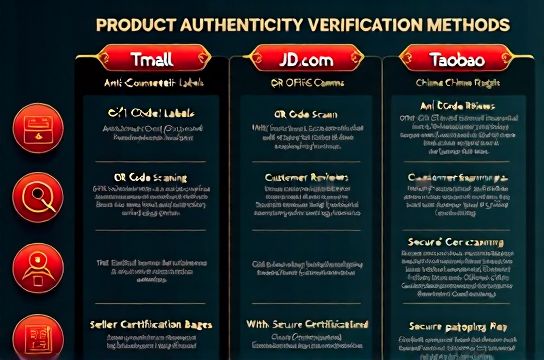Understanding Product Authenticity on Chinese Platforms
- 时间:
- 浏览:134
- 来源:OrientDeck
Shopping on Chinese e-commerce platforms like Taobao, Tmall, and JD.com can feel like navigating a digital maze — especially when you're trying to spot real deals from fake goods. With over 870 million online shoppers in China (Statista, 2023), the market is booming — but so are counterfeit products. So how do you separate the genuine Gucci from the 'Gucii'?

Why Authenticity Matters More Than Ever
Counterfeit sales account for nearly 6.5% of global trade (OECD), and China remains a major hub — not because all sellers are shady, but because the scale is massive. The good news? Platforms are fighting back with AI, blockchain, and strict seller verification.
Spotting the Real Deal: 5 Pro Tips
- Check the Seller’s Rating: Look for stores with >4.8 stars and high 'Service' and 'Logistics' scores.
- Read Between the Reviews: Genuine buyers often upload photos. Watch for copy-pasted text or overly perfect praise.
- Look for Official Flags: Tmall Global and JD Worldwide carry authorized distributors.
- Use Platform Authentication: Alibaba’s “TrustPass” and JD’s “Self-Operated” tags mean extra vetting.
- Price Too Good to Be True? It probably is. If it's 70% off retail, tread carefully.
Platform Comparison: Who Does It Best?
| Platform | Authenticity Rate* | Seller Verification | Return Policy |
|---|---|---|---|
| Tmall | 92% | Brand-authorized only | 15-day return |
| JD.com | 90% | Self-operated + strict third-party checks | 7-day no-reason return |
| Taobao | 70% | Open marketplace, mixed quality | Varies by seller |
*Estimated authenticity rate based on independent consumer reports (2023)
The Rise of Blockchain Authentication
Brands like L’Oréal and Apple now use blockchain tags via Alipay’s Ant Chain. Scan the QR code, and you’ll see the product’s full journey — from factory to your doorstep. It’s like a passport for your perfume.
Final Verdict: Play Smart, Shop Smarter
Yes, fakes exist — but so do tools to beat them. Stick to trusted platforms, read reviews like a detective, and embrace tech-powered verification. In China’s wild west of e-commerce, knowledge isn’t just power — it’s protection.